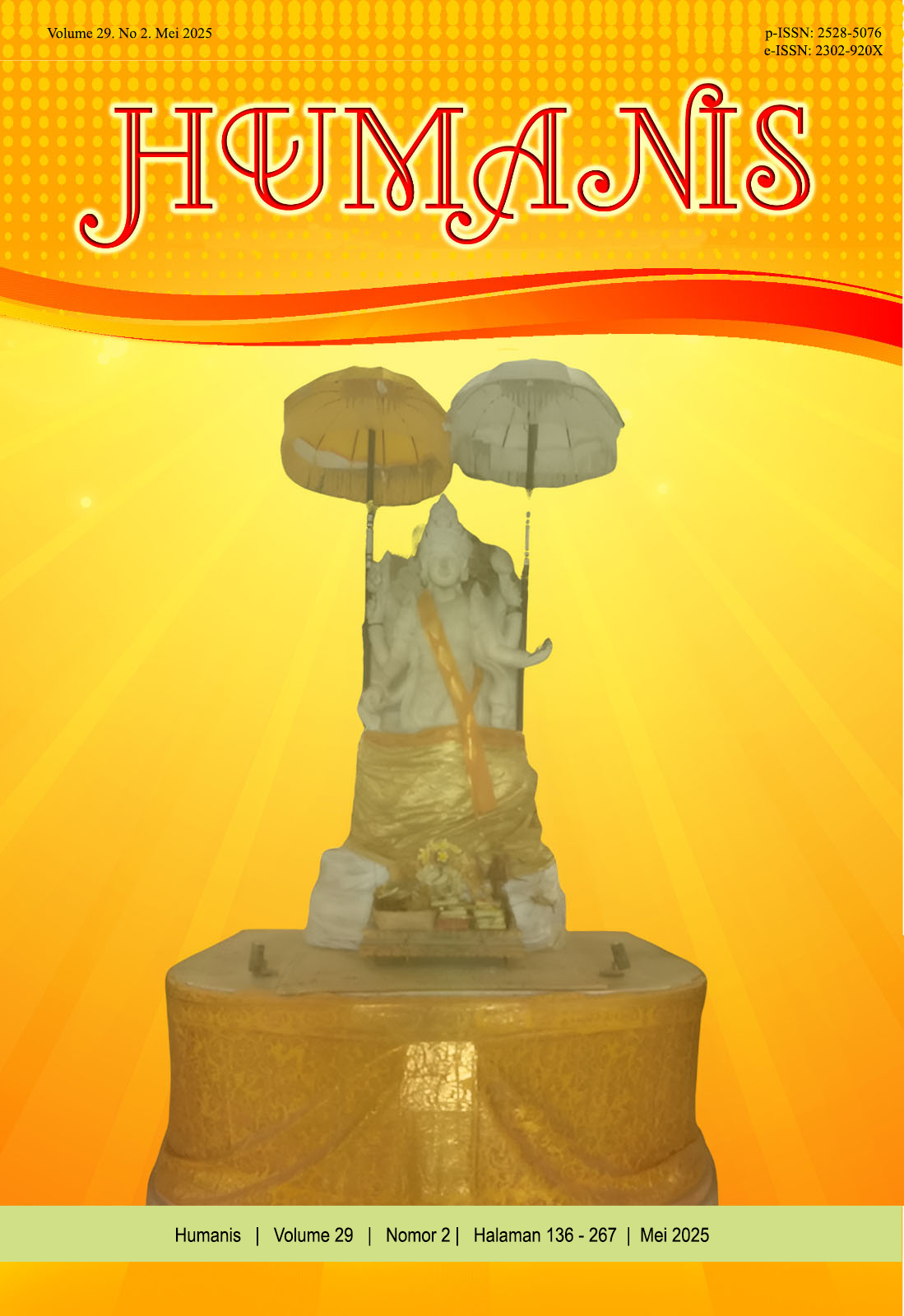Resistance as Existentialism in Camus' The Guest
Abstract
Albert Camus’ The Guest serves as a profound illustration of personal resistance against colonialism. This study explores resistance as an existentialist concept in Albert Camus’ The Guest, analyzing how individual autonomy and moral dilemmas reflect Jean-Paul Sartre’s existentialist philosophy. This research aims to demonstrate how resistance in the narrative is not merely political but also philosophical, embodied in the characters’ struggles with freedom and responsibility. Using Sartre’s existentialism as the theoretical framework, this study employs a qualitative research method, analyzing textual elements through close reading and interpretation. The findings reveal that the act of resistance in The Guest manifests through Daru’s micro expression, reflecting Sartre’s notion of existence precedes essence, condemned to freedom and responsibility, anguish, and forlornness. Ultimately, the study highlights how existential resistance challenges not only against external forces but also the burden of their own freedom.
Downloads
References
Aminzadeh, R. et al. (2022). Postcolonial Study on Guest by Camus in the lens of Homi Ke Bhabha. LingLit Journal Scientific Journal for Linguistics and Literature, 3(2), 57–62. https://doi.org/10.33258/linglit.v3i2.720
Aswathy, J. B. (2024). Albert Comeau’s “The Guest”: A Resolution and Behavioral Analysis. Journal of Languages and Culture, 15(2), 15-24.
Bautista, R. O. D. (2015). Jean-Paul Sartre’s vision of man’s condemnation to responsible freedom. The Antoninus Journal, 1, 20–27.
Bhabha, H. K. (1994). The Location of Culture. London: Routledge. Print
Bhandari, N. B. (2022). Resistance and Postcolonialism: A Critical Review. Journal of Political Science, 22, 92–99. https://doi.org/10.3126/jps.v22i1.43042
Blackham, H. J. (1952). Six Existentialist Thinkers. Kierkegaard. Nietzsche. Jaspers. Marcel. Heiddeger. Sartre. London & Henley: Rouledge&Kegan Paul.
Camus, A. (1957). The Guest. Translated by J. O'Brien. In: Exile and the Kingdom. New York: Knopf.
Cheng, M. (2023). An Analysis of Sartre’s Existentialism. Philosophy Journal, 2(1), 100–104. https://doi.org/10.23977/phij.2023.020117
Creswell, J. W., & Creswell, J. D. (2018). Research Design: Qualitative, Quantitative, and Mixed Methods Approaches (Fifth. Ed.). SAGE.
Fanon, F. (1961). The Wretched of The Earth. Translated by C. Farrington. New York: Grove Press.
Flynn, T. R. (2014). Sartre A Philosophical Biography. United Kingdom: Cambridge University Press.
Kipling, R. (2008). The Jungle Book. Oxford University Press.
Loomba, A. (2005). Colonialism Postcolonialism (The New Critical Idiom). Second ed. London: Routledge.
Mahmoud, S. A. A. (2019). Resistance in Postcolonial Literature with Reference to Sahar Khalifeh’s Wild Thorns. International Journal of Language and Literary Studies, 1(2), 74–87.
Mart, C. T. (2012). Existentialism in two plays of Jean-Paul Sartre. Journal of English and Literature, 3(3), 50–54.
Purnama, A. Y. et al. (2021). The Philosophy of Existentialism: Individual Awareness in Indonesian Education. Journal of Applied, Social, and Education Studies, 2(3), 220–227.
Sartre, J.-P. (2010). Existentialism Is a Humanism. Translated by P. Mairet. London: Methuen.
Sartre, J.-P. (2010). Existentialism and human emotion. In G. Marino (Ed.), Ethics: The essential writings. The Modern Library Classics.
Siame, M. (2020). The Robotic Man by Habit: An Existential Analysis of Albert Camus’ The Misunderstanding. Journal of Law and Social Sciences, 3(1), 93-100.
Suharto, T. (2011). Melacak Pemikiran Poskolonialisme Sartre: Pengantar Sartre untuk The Wretched of the Earth Karya Fanon. ESENSIA: Jurnal Ilmu-Ilmu Ushuluddin, 12(2), Article 2. https://doi.org/10.14421/esensia.v12i2.709
Sunarso, S. (2010). MENGENAL FILSAFAT EKSISTENSIALISME JEAN-PAUL SARTRE SERTA IMPLEMENTASINYA DALAM PENDIDIKAN. INFORMASI, 36(1). https://doi.org/10.21831/informasi.v1i1.5659
Tambunan, F. S. (2016). Kebebasan Individu Manusia Abad Dua Puluh: Filsafat Eksistensialisme Sartre. Jurnal Masyarakat & Budaya, 18(2), 215–231.


















